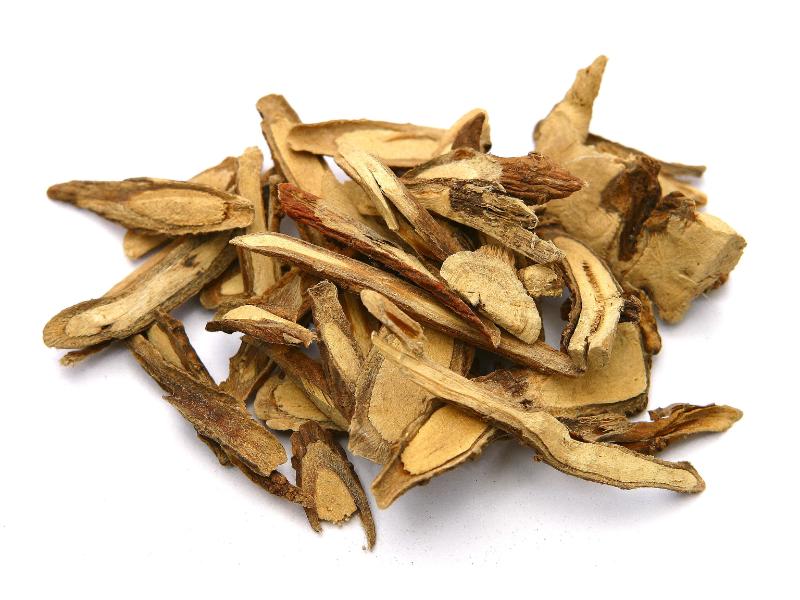Search in medicinals
Sophorae Tonkinensis Radix
Bushy sophora [root]
山豆根 〔山豆根〕 shān dòu gēn

Alternate English names: Tongkingese [root] Vietnamese sophora [root]
Alternate Chinese names: 山大豆根 shān dà dòu gēn; 黄结 huáng jié; 广豆根 guǎng dòu gēn
Kingdom: Plant
Origin in PRC Pharmacopoeia: Sophora tonkinensis Gagnep. [= Sophora subprostrata Chun et T. Chen] (PRC Pharmacopoeia)
Origin in unofficial sources: Sophora tonkinensis Gapnep.* [= Sophora subprostrata Chun et T. Chen]; Dunbaria circinalis (Benth.) Bak.; Indigofera amblyantha Craib; Indigofera ichangensis Craib; Indigofera kirilowii Maxim. ex Palib.; Indigofera potanii Craib.
Use: Medicinal
Category: Heat-clearing agents / Heat-clearing toxin-resolving agents
Properties: Bitter; cold; toxic.
Channel entry: Lung and stomach channels.
Actions and indications:
- Clears heat and resolves toxin; disinhibits the throat; disperses swelling and relieves pain: Painful swollen throat due to heat toxin.
- Additional actions: Shān dòu gēn can be used for damp-heat jaundice, lung heat cough, and toxin swelling of welling-abscesses and
sore s. For sores, it can be applied topically.
Dosage and method: Oral: 3–6g in decoctions. For external use it can be decocted to make a wash or can be applied as a powder.
Warnings: Unsuitable for spleen-stomach vacuity cold with reduced eating and sloppy stool. Shān dòu gēn is toxic, and excessively high doses can cause diarrhea,
Product description: This root is cylindrical, 10–15 cm long and about 7 mm in diameter, and often has branch roots. It is blackish brown in color, with coarse longitudinal wrinkles and long transverse lenticels that protrude slightly. It breaks to leave a granular fracture. The decocting pieces are thin oblique slices, whose cut face is smooth and light brown with annular markings.
Quality: Fat farinaceous roots are the best.
Production area: Jílín, Guǎngdōng.
Etymology: The name shān dòu gēn 山豆根, literally mountain bean root,
is so named because the plant trails like a bean plant.